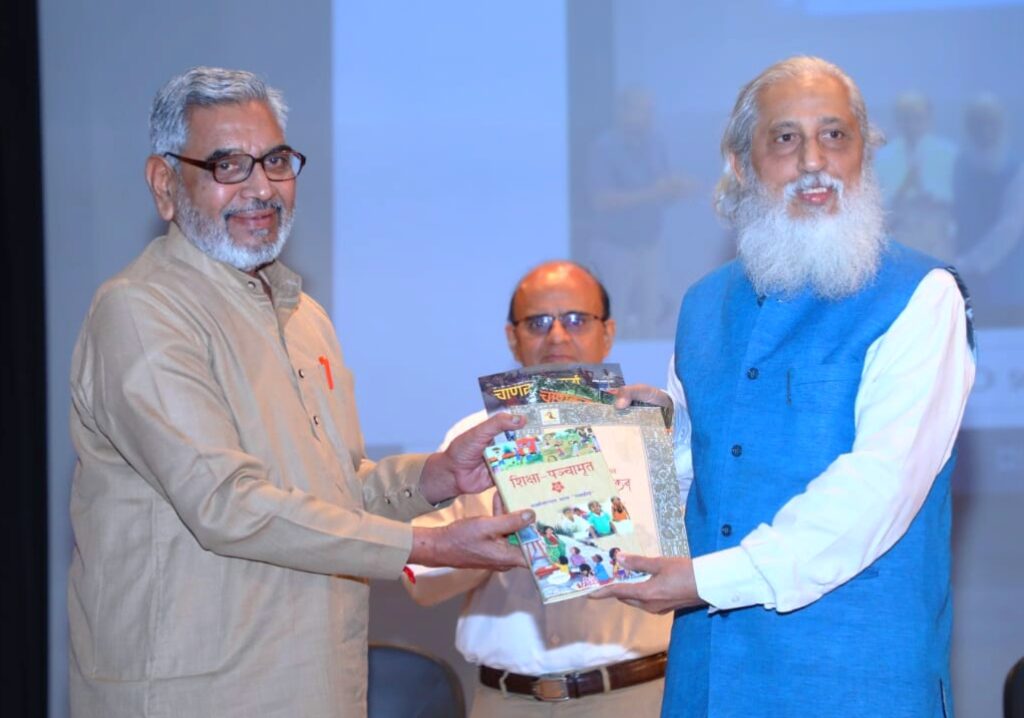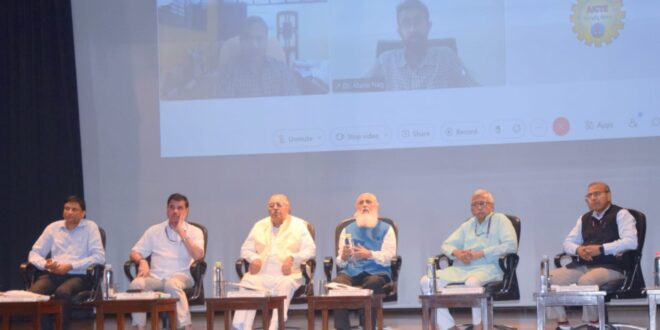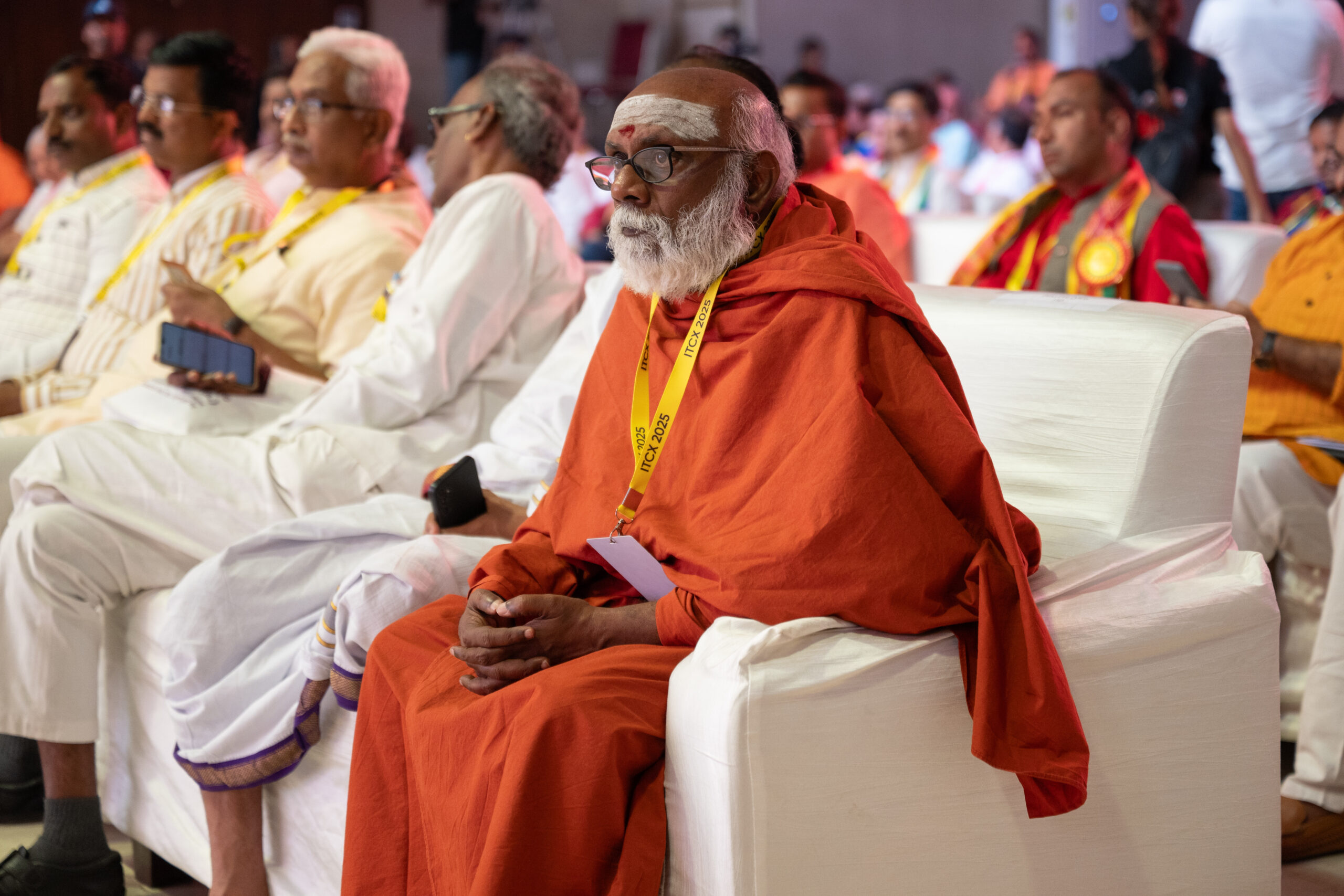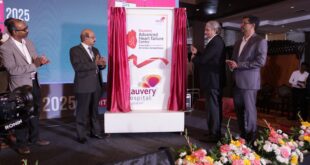
New Delhi, July 2022: The All India Council for Technical Education (AICTE) organized an enlightening a day-long ‘Conclave on Implementation of National Education Policy (NEP) 2020: Facilitating Engineering Education in Indian Languages’ on July 15, 2022 at the AICTE headquarters in New Delhi.
The Conclave aimed to encourage interactions with the Vice-Chancellors of technical universities, Directors of NITs and professional bodies like the Indian National Academy of Engineering (INAE) to spread awareness about technical education in the Indian languages. In alignment with the National Education Policy (NEP) 2020, AICTE aims to make engineering accessible to speakers of all major indigenous languages.
“Language is a powerful medium to reach the last person standing and give students the confidence to learn better in their own language. Language should not be a barrier in learning. After the first year, we are ramping up our translation and writing in Indian languages for second and further years of engineering. It is getting even more intense as subjects diversify and electives come in,” said Prof. Anil D. Sahasrabudhe, Chairman, AICTE.
The conclave also felicitated key persons across different states aiding AICTE in translating engineering books in Indian languages. During the program, students pursuing engineering courses (Computer Science and Engineering) in Indian languages such as Marathi, Telugu and Hindi, also shared their feedback, citing ease of study and learning concepts and terminology.
“Language and education are closely interlinked. NEP 2020 talks about education in Indian languages, an education which is value-based and deeply rooted in the Indian ethos. AICTE has made extensive effort for providing technical education with a universal base of humanity, which is the core of our Bharatiya civilization. We can enable learning in the mother language a child is born into, making it easier for the child to learn. We are more ready to do that as in the past few years, we have trained over 50,000 faculty members in Universal Human Values who are ready to impart such holistic and value-based education”, said Prof M P Poonia, Vice-Chairman, AICTE.
Notably, AICTE has initiated technical education in Indian languages in the year 2021-22 to decentralize the availability of study material in only English. About 20 institutions had started programs at Under Graduate and Diploma levels in six languages, i.e., Hindi, Marathi, Telugu, Kannada, Tamil and Marathi, across ten states in which 255 students were enrolled.
“Translations using digitized tools can help in speed and scale of the project, but human intervention is needed for review of the translation quality. We must prepare educators and principals to review them. 90 percent of our GDP comes from the effort of people speaking local regional languages, not English. More than teaching language, we must teach through language. We must revive traditional knowledge systems and our Indian roots through language. I highly respect this initiative by AICTE,” said Prof Chamu Krishna Shastry, Chairman, High Powered Committee for the Promotion of Indian Languages, Ministry of Education.
Santosh Kumar Taneja, Samkalp Foundation Trust, New Delhi, said, “There’s a widespread belief that Indian languages cannot take you ahead in life. It’s a great injustice to our people that we don’t let our students pursue higher education in Indian languages. Out of the 24 lakh engineering seats in India each year, only 18 lakh seats get filled. If we open these seats to engineering in Indian languages, we can open up many more opportunities and significantly improve the gross enrollment ratio”
“The non-availability of course material in Indian languages was the major hurdle in engineering in one’s own mother tongue. To address this, we have started original book writing and translations. To provide the course material for engineering in Indian Languages, AICTE had introduced technical book writing and AI assisted machine translation in 12 scheduled Indian languages – Hindi, Marathi, Bengali, Tamil, Telugu, Gujarati, Kannada, Punjabi, Odia, Assamese, Urdu and Malayalam”, shared Prof Rajive Kumar, Member Secretary, AICTE.
AICTE has earmarked a budget of Rs 18.6 crores for developing the second-year course material in English and its translation into 12 Indian languages.
Simultaneously, on the University front, 40 institutes across 10 states namely Andhra Pradesh, Haryana, Karnataka, Madhya Pradesh, Maharashtra, Rajasthan, Tamil Nadu, Uttar Pradesh, Uttarakhand and West Bengal have come forward to start engineering education in one or more disciplines in six Indian Languages: Bengali, Hindi, Kannada, Marathi, Tamil and Telugu with a total intake capacity of 2070 students in 2022-23, in this academic year.
Three expert panel discussions took place, featuring education stalwarts’ views on themes such as
(i) Genesis and Importance of Education in the mother tongue,
(ii) Role of the Universities/State Technical Education Department/Regulatory Bodies as an enabler to impart technical education in Indian Languages, and
(iii) Future Road Map to make outcome-based education accessible in Indian languages.
Vice-chancellors, directors and professors of various universities, including IGNOU, IIT Kanpur, NIT Nagaland, Gujarat Technological University, and IIITDM Jabalpur, joined the program as panelists.
 Expressnews
Expressnews









